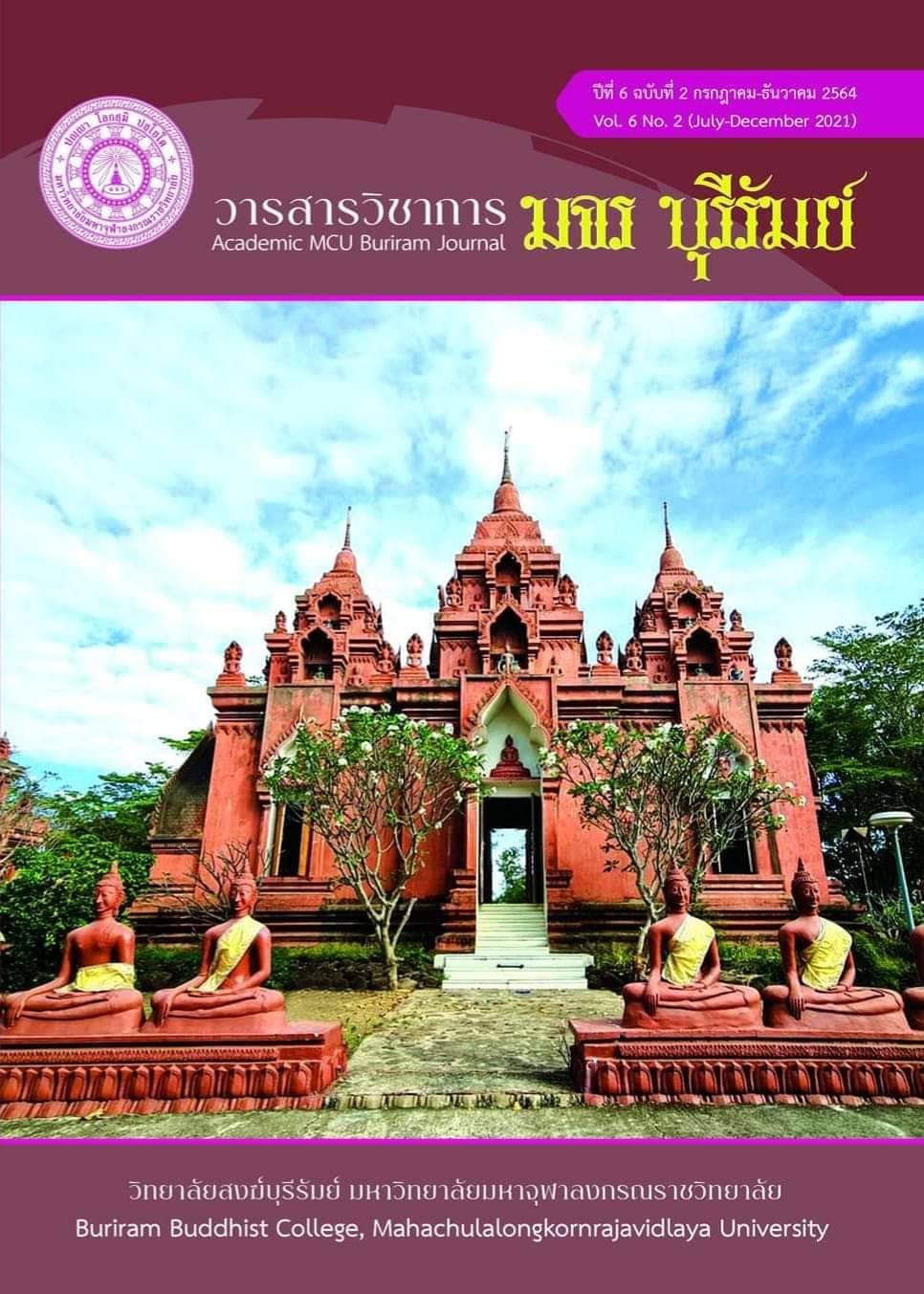The Effect of Crystal-Based Learning with Authentic Assessment on Science Competency of Students in First Secondary School
Keywords:
Crystal-Based Learning, Scientific CompetencyAbstract
The purposes of this research are as follows: (1) to compare the scientific competency of in First Secondary School students who received crystal-based learning with authentic assessment when controlling scientific identity. The research sample consisted of 24 in First Secondary School students of Kanoksinpittayakom School during the second semester of the 2020 academic year, which was obtained by Multi-stage Sampling. The research instruments consisted of a scientific identity assessment scale, crystal-based learning with authentic assessment management plan and tests of science competency. The statistics employed for data analysis were mean, standard deviation and One-Way Repeated Measures ANCOVA. The results of the research were as follows: scientific identity affecting science competency from all three repeated tests at a statistically significant level of .05. (F= 86.853, p =0.000) When comparing the scientific competency scores of the students, who learned with crystal-based learning with authentic assessment from all three repeated tests with scientific identity as a covariate variable. The results of comparing each pair were found that the Scientific Competency Mean Score, Unit 1 and Unit 2, had a statistically significant difference of .05 (p = 0.000).
References
ภาณุมาศ เสียระหัง. (2558). ผลการจัดการเรียนรู้แบบโครงงานวิทยาศาสตร์เพื่อพัฒนาสมรรถนะทางวิทยาศาสตร์ เรื่อง วงจรไฟฟ้าสำหรับนักเรียนชั้นมัธยมศึกษาปีที่ 3. วิทยานิพนธ์การศึกษามหาบัณฑิต. มหาวิทยาลัยนเรศวร: พิษณุโลก.
ภิญญาพันธ์ ร่วมชาติ. (2553). ปัจจัยเชิงสาเหตุของความผูกพันต่อบทบาท เอกลักษณ์ของนักเรียนวิทยาศาสตร์ แรงจูงใจในการเรียนวิทยาศาสตร์ ความคลุมเคลือในบทบาทที่มีผลต่อพฤติกรรมตามบทบาทของนักเรียนวิทยาศาสตร์ ที่มีความสามารถพิเศษทางวิทยาศาสตร์. ปริญญานิพนธ์ดุษฎีบัณฑิต. มหาวิทยาลัยศรีนครินทรวิโรฒ: กรุงเทพฯ.
เยาวพา เดชะคุปต์. (2553). พหุปัญญาในทศวรรษใหม่. วารสารการศึกษาปฐมวัย, 13(1), 10-11.
สถาบันส่งเสริมการสอนวิทยาศาสตร์และเทคโนโลยี. (2015). สรุปผลการวิจัย PISA 2015. กรุงเทพฯ.
สุรัสวดี นราพงศ์เกษม. (2557). การพัฒนาความสามารถในการเขียนบทความโดยใช้วิธีการสอนแบบสร้างผลงานจากการตกผลึกทางปัญญา สำหรับนักศึกษามหาวิทยาลัยราชภัฏยะลา. วารสารปาริชาต, 27(3), 61.
สำนักงานคณะกรรมการการศึกษาขั้นพื้นฐาน กระทรวงศึกษาธิการ. (2560). ตัวชี้วัดและสาระการเรียนรู้แกนกลางกลุ่มสาระการเรียนรู้วิทยาศาสตร์ (ฉบับปรับปรุง พ.ศ. 2560). กรุงเทพฯ: โรงพิมพ์ชุมนุมสหกรณ์การเกษตรแห่งประเทศไทย จำกัด.
อรพรรณ พงศ์ประยูร. (2559). สถานการณ์ในการเรียนและลักษณะทางจิตที่เกี่ยวข้องกับการเรียนรู้แบบนักวิทยาศาสตร์รุ่นเยาว์ของนักเรียนระดับมัธยมศึกษาตอนปลายในโรงเรียนวิทยาศาสตร์ของรัฐและโรงเรียนมัธยมศึกษาทั่วไป. วิทยานิพนธ์การศึกษามหาบัณฑิต. มหาวิทยาลัยศรีนครินทรวิโรฒ: กรุงเทพฯ.
Jeffrey. (2017). Research Methods in Applied Setting: An Integrated Approach to Design and Analysis. New York: Routledge.
Stryker. (1987). Identity Theory: Developments and Extension. In self and Identity: Psychosocial perspectives. Chichester: John Wiley & Sons.
Downloads
Published
How to Cite
Issue
Section
License
ทัศนะและความคิดเห็นที่ปรากฏในบทความวารสารฉบับนี้ถือเป็นความรับผิดชอบของผู้เขียนบทความนั้น ไม่ถือเป็นทัศนะและความรับผิดชอบของบรรณาธิการ





